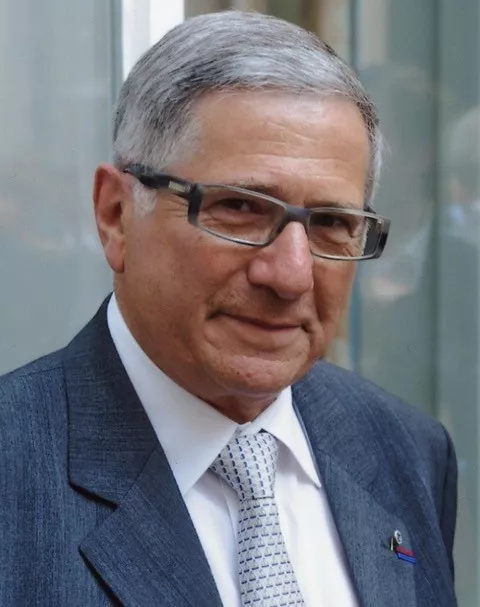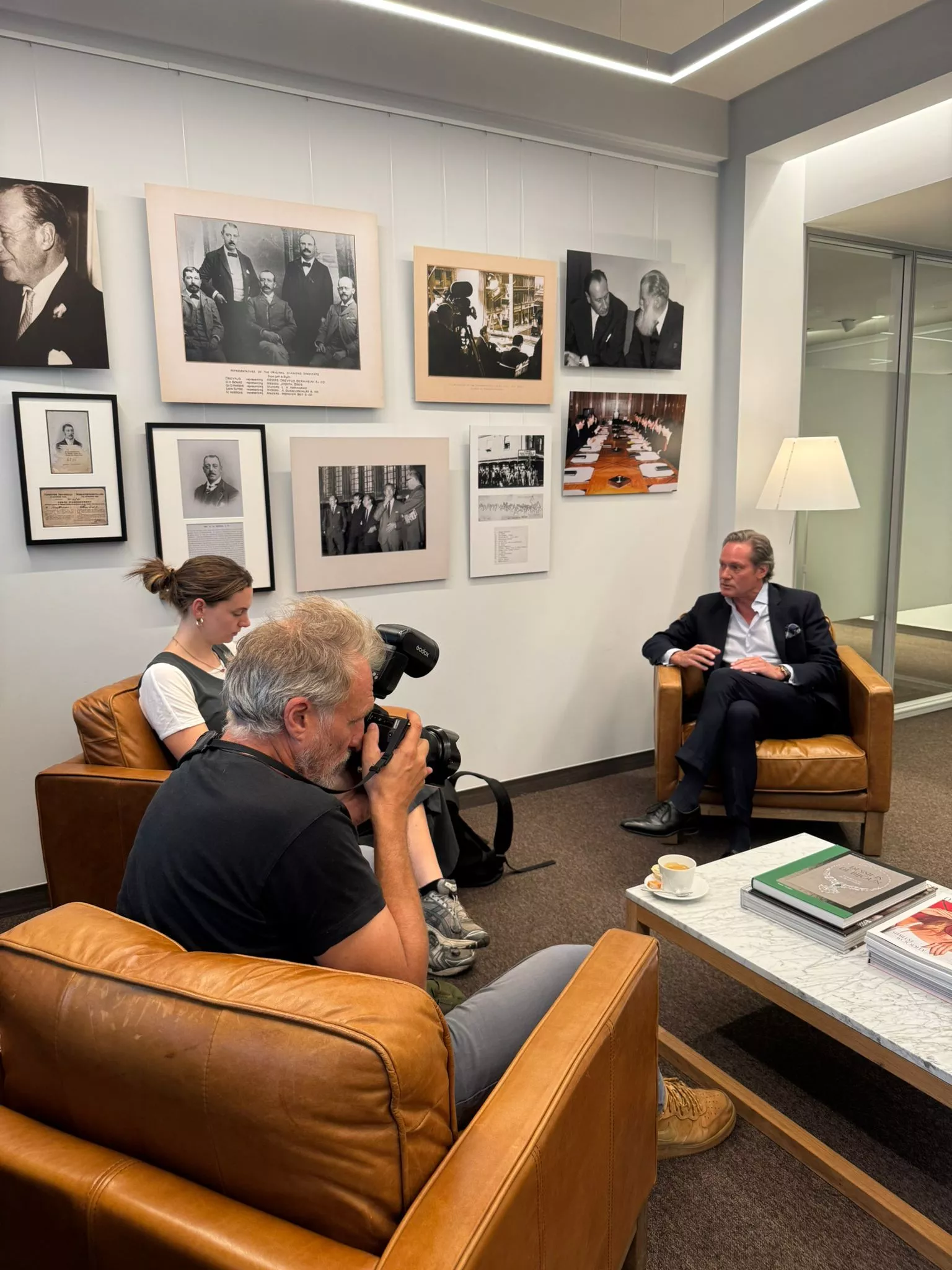In ‘The Faces of the Industry,’ a monthly recurring item in our newsletter, we bring an industry name to the spotlight, one at a time. This person has been nominated by the previous ‘Face of the Industry’ and will appoint the one for the next edition of the Antwerp Diamond Digest.
This time, we had the pleasure of interviewing Rob van Beurden, who you might know as “Robert den Expert”. Rob has been active in the industry for over 40 years. In addition to his work at Diamond House Jewellery, he values numerous heirlooms, jewelry, watches, you name it, as “Robert den Expert”.
How did you get the nickname "Robert den Expert"?
Rob van Beurden: I’m married to a French woman, and my late father-in-law, who was a giant of a man, asked me what my name was. I said "Rob," but he told me, "That’s not a name. I’ll call you Robert." I didn’t argue with him, and that’s how " Robert" came about. Later, my wife started calling me "Robert den Expert," and I immediately realized it would be a hit on Radio Minerva. From there, we moved from Minerva to Radio 2, billboards, ATV, and I became known as "Robert den Expert."
How did you get into contact with Radio Minerva? Can you explain how this all came to be exactly?
Rob: While many radio stations see me as a ‘catch’ and almost aggressively try to have me as a client, with Minerva it is the other way round. You need to come up with a dossier and Minerva will track your details, history and credibility, to see if you are worth their listeners’ trust.
Does the name 'Robert den Expert' get used by your clients too?
Rob: Yes, more and more often. Even friends are starting to call me Robert, so my name is gradually changing! I almost look at it as my alter ego.
Can you tell us about your company and your role within it?
Rob: There are two companies: diamond wholesale and diamond retail. I’m the kind of person who always has a plan B and C ready, just in case plan A doesn’t work. Over the years, during the dot-com crisis, the banking crisis, and COVID, I’ve always been prepared with a backup plan, and that plan has often been“Robert den Expert”. Our business model is web-to-shop: customers find us online, tell us what they’re looking for, and we help them in one of our offices in London, Dublin, or Antwerp. Allow me to proudly say that we evenwere the first in the world to have a diamond website, back in 1986.
How did you get started in the diamond industry?
Rob: I’ve been active in the industry since 1981. The peak of the diamond industry was around that time, but it became tougher after. I started as a freelancer, working at various companies, and then eventually, I co-founded a business with two colleagues. After a short period, I continued independently, together with my wife Céline, and I’ve been doing that for a long time now.
What does a typical workday look like for you and your wife?
Rob: I usually work alone, but my wife, Céline, handles all the sales for London, Dublin, and Antwerp. She travels quite a bit and spends a few days a week at our London office. Thanks to “Robert”, our business has grown quite large. We’veeven looked into acquisition strategies, but we’ve opted for a more closed model where customers can only visit by appointment.
What can you tell us about thebuying and recycling of old jewelry and watches?
Rob: We buy old jewelry, watches, and other items and recycle the diamonds. Starting this year, 10% of all diamonds sold worldwide will be recycled, which is not beneficial for the mining industry because fewer new diamonds need to be extracted. Millennials and Gen Z particularly value recycled diamonds, as they don't require extra resources and have a smaller environmental impact.
How do people react when they learn the value of their heirlooms?
Rob: It works both ways. Some people come in expecting their items to be worth very little, and they leave with thousands of euros. There are also surprises, like a family from Madrid who thought their grandmother’s 10ct diamond was worth a million, but it turned out to be a Cubic Zirconia worth far less. The grandmother was convinced by the grandfather that her ring was a natural diamond, but the grandfather had been lying all along and had given her a ring set with zirconia.
What is your outlook on the future of the diamond industry?
Rob: Antwerp will remain significant as the most ethical diamond centre in the world, but the demand for diamonds is shrinking. Millennials and Gen Z have less interest in diamonds. The industry will need to adapt, with a focus on sustainability and unique products. The demand for diamonds will mostly come from the high-end market.
What advice would you give to people looking to enter the diamond industry?
Rob: You need a strong business plan with a clear unique selling proposition. Make sure to stand out! Otherwise, you won’t succeed.
Which must-sees would you recommend to tourists visiting Antwerp for diamonds?
Rob: We’ve developed a program in collaboration with the Botanic Sanctuary in Antwerp. It offers a full experience with workshops, spa, wellness, and of course, diamonds. We want to promote Antwerp as the diamond city of the future and provide visitors with a unique experience.
Finally, who would you nominate for an interview?
Rob: I would nominate Oded Shapiro from Shapiro Gems. He has a great story and remains someone with a strong vision for the industry.




